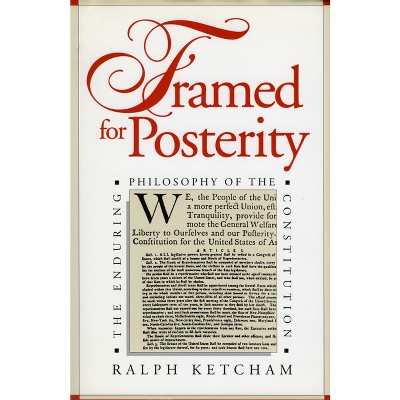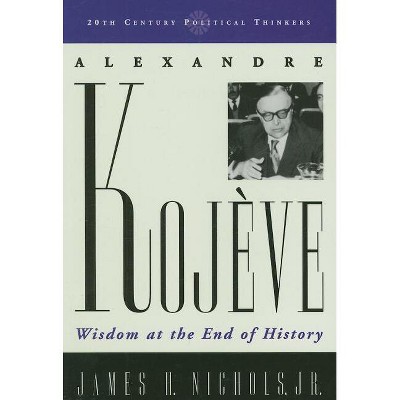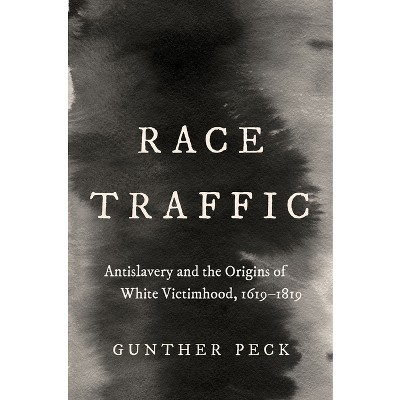Sponsored

The Development of American Citizenship, 1608-1870 - (Published by the Omohundro Institute of Early American Histo) by James H Kettner (Paperback)
$50.00
In Stock
Eligible for registries and wish lists
Sponsored
About this item
Highlights
- The central British idea was that subjectship involved a personal relationship with the king, a relationship based upon the laws of nature and hence perpetual and immutable.
- Author(s): James H Kettner
- 402 Pages
- Political Science, Civil Rights
- Series Name: Published by the Omohundro Institute of Early American Histo
Description
About the Book
Development of American Citizenship, 1608-1870Book Synopsis
The central British idea was that subjectship involved a personal relationship with the king, a relationship based upon the laws of nature and hence perpetual and immutable. The conceptual analogue of the subject-king relationship was the natural bond between parent and child.
Across the Atlantic divergent ideas were taking hold. Colonial societies adopted naturalization policies that were suited to practical needs, regardless of doctrinal consistency. Americans continued to value their status as subjects and to affirm their allegiance to the king, but they also moved toward a new understanding of the ties that bind individuals to the community. English judges of the seventeenth and eighteenth centuries assumed that the essential purpose of naturalization was to make the alien legally the same as a native, that is, to make his allegiance natural, personal, and perpetual. In the colonies this reasoning was being reversed. Americans took the model of naturalization as their starting point for defining all political allegiance as the result of a legal contract resting on consent.
This as yet barely articulated difference between the American and English definition of citizenship was formulated with precision in the course of the American Revolution. Amidst the conflict and confusion of that time Americans sought to define principles of membership that adequately encompassed their ideals of individual liberty and community security. The idea that all obligation rested on individual volition and consent shaped their response to the claims of Parliament and king, legitimized their withdrawal from the British empire, controlled their reaction to the loyalists, and underwrote their creation of independent governments.
This new concept of citizenship left many questions unanswered, however. The newly emergent principles clashed with deep-seated prejudices, including the traditional exclusion of Indians and Negroes from membership in the sovereign community. It was only the triumph of the Union in the Civil War that allowed Congress to affirm the quality of native and naturalized citizens, to state unequivocally the primacy of the national over state citizenship, to write black citizenship into the Constitution, and to recognize the volitional character of, the status of citizen by formally adopting the principle of expatriation.
Review Quotes
A splendid and original piece of research.
"American Historical Review"
An exemplary monograph. . . .The work is also beautifully crafted and thoroughly grounded in its sources.
"Reviews in American History"
The finest, freshest, and most significant book about any aspect of American history to have appeared in recent years.
"Choice"
Dimensions (Overall): 9.0 Inches (H) x 6.0 Inches (W) x .9 Inches (D)
Weight: 1.3 Pounds
Suggested Age: 22 Years and Up
Series Title: Published by the Omohundro Institute of Early American Histo
Sub-Genre: Civil Rights
Genre: Political Science
Number of Pages: 402
Publisher: Omohundro Institute and Unc Press
Format: Paperback
Author: James H Kettner
Language: English
Street Date: September 1, 2005
TCIN: 88978218
UPC: 9780807841228
Item Number (DPCI): 247-57-1042
Origin: Made in the USA or Imported
If the item details aren’t accurate or complete, we want to know about it.
Shipping details
Estimated ship dimensions: 0.9 inches length x 6 inches width x 9 inches height
Estimated ship weight: 1.3 pounds
We regret that this item cannot be shipped to PO Boxes.
This item cannot be shipped to the following locations: American Samoa (see also separate entry under AS), Guam (see also separate entry under GU), Northern Mariana Islands, Puerto Rico (see also separate entry under PR), United States Minor Outlying Islands, Virgin Islands, U.S., APO/FPO
Return details
This item can be returned to any Target store or Target.com.
This item must be returned within 90 days of the date it was purchased in store, shipped, delivered by a Shipt shopper, or made ready for pickup.
See the return policy for complete information.
Frequently bought together

$18.88
MSRP $27.00
Buy 2, get 1 free select books, music & movies
4.8 out of 5 stars with 571 ratings
Trending Non-Fiction


$19.31
was $20.98 New lower price
Buy 2, get 1 free select books, music & movies
4 out of 5 stars with 60 ratings

$19.58
MSRP $29.00
Buy 2, get 1 free select books, music & movies
4.6 out of 5 stars with 13 ratings

$4.59
MSRP $7.99
Buy 2, get 1 free select books, music & movies
4.8 out of 5 stars with 120 ratings

$6.20
MSRP $10.95
Buy 2, get 1 free select books, music & movies
4.8 out of 5 stars with 33 ratings

$7.09
MSRP $9.99
Buy 2, get 1 free select books, music & movies
4.9 out of 5 stars with 46 ratings










